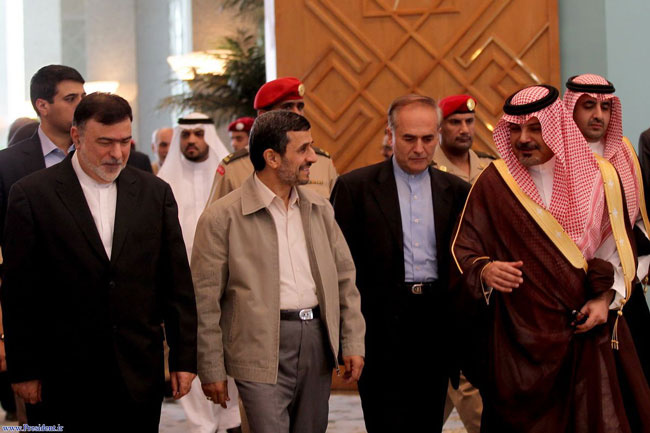Interests that are only important for Riyadh

Iranian Diplomacy: The extraordinary meeting of the Organization of Islamic Cooperation (OIC) is underway in Mecca. What is the reason behind such an extraordinary meeting? And what is the importance of such a meeting?
Sabah Zanganeh: The Saudi decision to hold this OIC meeting in Mecca in the last days of the holy month of Ramadan implies the following concepts:
1. This meeting convenes at a time when the Islamic world faces problems and general uprisings and a popular movement called the Arab Spring or Islamic Awakening in different Islamic countries, and when differences exist in the Islamic countries.
2. Widespread military clashes have reached their peak, and these events are not similar to any of the existing developments during the last two years in the Arab world.
3. There is a possibility of polarization and tribal and religious dispute in most of the Islamic countries.
4. Next to Saudi Arabia, developments are happening in Yemen and Bahrain, and there is a possibility that part of the impacts of these developments and conflicts will enter Saudi Arabia.
ID: Why has Saudi Arabia decided to hold this summit?
SZ: All of the above-mentioned points have led Saudi Arabia to take this initiative. After the unsuccessful results of chain meetings of the Friends of Syria in Istanbul, Tunisia, and Europe, Arab League meetings, the defeat of Kofi Annan’s mission in Syria, and prior to the NAM Summit in Tehran, this initiative was proposed by Saudi Arabia.
ID: Yesterday, President Ahmadinejad went to Saudi Arabia to participate in this meeting. How can this visit by the president and his high-ranking delegation be interpreted?
SZ: This meeting and the participation of the president in it can mean the following observations:
1. The convening of extraordinary meetings should usually be in coordination with the former, current and future OIC presidents. Has such coordination taken place?
2. Taking into consideration its actions in countries like Bahrain and Syria, does Saudi Arabia have the credentials to host this meeting?
3. Is Saudi Arabia neutral enough with regard to the question of Syria?
4. The media atmosphere in Saudi Arabia continues to be against Iran and a number of countries and NGOs in the region. With this atmosphere, can this country have the credentials to hold such a meeting?
5. The recent execution of a number of Iranian citizens by Saudi Arabia has caused hurt to Iranians. Has Saudi Arabia promised not to repeat such an act and to compensate for it?
6. With the participation of the Iranian president in the meeting, is Saudi Arabia going to be represented in the upcoming NAM meeting in Tehran at the level of the king or the crown prince?
7. Is the objective of the meeting in fact a call for Islamic solidarity and doing away with differences and violent religious and ethnic conflicts or is it the creation of a new atmosphere against the Islamic Republic of Iran? Or is the conclusion of this meeting going to affect the current Syrian crisis?
ID: While relations between Iran and Saudi Arabia are moving towards a dark period, can Ahmadinejad’s visit play an effective role in improving bilateral relations?
SZ: The present analysis of Saudi Arabian policies does not indicate that these policies will change with one trip or one meeting. General policies followed by Saudi Arabia in the region, such as increasing oil production and export and encouraging the adoption of resolutions against Iran and Syria, show a thorough and designed strategy which is impossible to suddenly change with one trip.
Iran must always claim, propagate, and be the first to take measures in removing tensions, differences and conflicts among Muslims. The Islamic Republic of Iran must define minimums for relations and invite the Islamic world, countries, nations and governments to unity and solidarity. It should show a more accurate picture of what is designed for Islamic countries behind the scenes of international developments. What is designed now is a general weakening of the entire world of Islam and creating conflicts between Muslims.
ID: Under these conditions, are there many differences between the OIC member states?
SZ: These conflicts exist between the heads of most of the countries. Of course, Saudi Arabia’s financial power and its transformation to political power have hidden some of these differences, but the entire Islamic region is filled with political and outlook differences.

